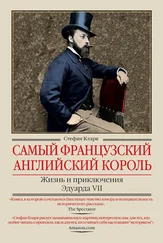Стефан Кларк - 1000 Years of Annoying the French
Здесь есть возможность читать онлайн «Стефан Кларк - 1000 Years of Annoying the French» весь текст электронной книги совершенно бесплатно (целиком полную версию без сокращений). В некоторых случаях можно слушать аудио, скачать через торрент в формате fb2 и присутствует краткое содержание. ISBN: , Издательство: Transworld Digital, Жанр: Старинная литература, на английском языке. Описание произведения, (предисловие) а так же отзывы посетителей доступны на портале библиотеки ЛибКат.
- Название:1000 Years of Annoying the French
- Автор:
- Издательство:Transworld Digital
- Жанр:
- Год:неизвестен
- ISBN:9781407067629
- Рейтинг книги:3 / 5. Голосов: 1
-
Избранное:Добавить в избранное
- Отзывы:
-
Ваша оценка:
- 60
- 1
- 2
- 3
- 4
- 5
1000 Years of Annoying the French: краткое содержание, описание и аннотация
Предлагаем к чтению аннотацию, описание, краткое содержание или предисловие (зависит от того, что написал сам автор книги «1000 Years of Annoying the French»). Если вы не нашли необходимую информацию о книге — напишите в комментариях, мы постараемся отыскать её.
1000 Years of Annoying the French — читать онлайн бесплатно полную книгу (весь текст) целиком
Ниже представлен текст книги, разбитый по страницам. Система сохранения места последней прочитанной страницы, позволяет с удобством читать онлайн бесплатно книгу «1000 Years of Annoying the French», без необходимости каждый раз заново искать на чём Вы остановились. Поставьте закладку, и сможете в любой момент перейти на страницу, на которой закончили чтение.
Интервал:
Закладка:
But if you lift the audio-set away from your ear for a second and cut off the hypnotic voice, you might start to question why on earth Harold would do such a thing, when he himself was a likely candidate for the English throne.
There was another possible motive for his trip. It has been suggested that Harold crossed the Channel on a mission to retrieve two members of his family who had been kidnapped by Normans in 1051 and held hostage on the continent ever since. This is of course much more credible. If Harold became King of England and thereby provoked the covetous William, the two unfortunate Godwins languishing in Norman dungeons were bound to get their rations, or worse things, cut.
So the first tableau in the tapestry could well represent Harold getting permission from King Edward to go and reclaim the prisoners, and not Edward ordering him to go and deliver the humiliating, anti-Godwin confirmation of William’s claim to the English throne.
Either way, as bad luck would have it, Harold’s ship blew off course and he landed in Ponthieu (part of the Duchy of Normandy), in an area ruled by a notorious hostage-taker called Count Wido. Harold’s unexpected arrival made the Count a very merry Wido indeed, and he immediately seized the rich Anglo-Saxon.
Unluckily for Wido, his superior in the feudal system, William, heard about the windfall and decreed that the hostage was his. Which was true – as Duke of Normandy, William’s rights included ownership of anything that washed up on the beach, including numerous whale carcasses, which were a valuable source of oils and ivory. 5
As a prisoner of his Norman rival, Harold might well have feared for his life, but he was probably in little danger of receiving a sword stroke as a welcoming gift. William didn’t usually kill his well-born enemies unless they were no longer useful to him or made a joke about the leather industry. He preferred to make them swear an oath of feudal fealty, which meant that they were obliged, on pain of death and/or eternal barbecuing in the fires of hell, to give him a percentage of everything they earned and help him defend his territory should the need arise. In short, he butchered the poor enemies and milked the rich ones.
With Harold, there was even more to be won – an oath of allegiance would sideline the Godwin family as contenders for the English Crown, because they would have to step aside for their superior, William. In the tapestry, you can almost hear the Norman chuckling as an abashed Harold swears eternal loyalty to William. According to Saxon sources, Harold didn’t know as he gave his oath that holy relics were hidden under the table, turning the simple promise into a sacred vow. But to William and the Normans, Harold’s ignorance wouldn’t have mattered. People were very literal about their religion in those days. If you swore on a saint’s funny bone that you would do something, you had to do it, otherwise a plague of monster fleas would crawl inside your army’s chainmail. In Norman eyes, Harold’s oath was binding, with God as a witness.
William tightened the screws even further by betrothing Harold to his daughter Aélis, even though she was already formally engaged to a local nobleman – thus proving that all Norman oaths were binding, but some were more binding than others.
With Harold now inextricably bound over to submit to William’s claim to the English throne, he was finally allowed to sail home to England. The tapestry shows Harold hunched apologetically as he tells his tale to King Edward, who points at him accusingly, as if to say, ‘What, you went to Normandy and you didn’t bring me any Camembert?’
The audio commentary talks about Harold’s ‘humiliation’, but if Harold’s mission really was to tell William he was going to be king, where is the humiliation? He had delivered his message and even sworn allegiance to the future King William. The trip took a bit longer than expected, and he forgot to bring presents, but it went exactly as planned.
On the other hand, Harold had every reason to be bowed if he had failed in his mission to fetch his relatives – not only had he returned alone, he’d also got himself tricked into swearing homage to William when Edward was grooming him, Harold, as successor to the throne.
We will never know the truth, but one thing is certain – when Edward the Confessor died on 5 January 1066, Harold accepted the Witangemot’s nomination and became the legally appointed King of England. Across the Channel, William’s self-congratulatory chuckles turned into threats of legal action. Harold had sworn allegiance, in front of witnesses and on a saint’s funny bone, and could not therefore claim the throne ahead of him. The Normans immediately began to accuse the new King of oath-breaking, feudalism’s most heinous crime.
Harold didn’t need to hire expensive lawyers to dream up a credible defence, though – what hostage is going to refuse to take an oath to a man who is holding him hostage? And what jurisdiction did this Norman foreigner have in England?
Sensing perhaps that Harold might have a case, Duke William of Normandy even went so far as to plead for support from the Holy Church. (Yes, the same Holy Church whose ruling he had ignored when he wanted to marry his cousin.) As a reward for this newfound piety, the Pope sent William a consecrated banner that figures prominently in the tapestry, much like a sponsor’s logo on a Formula One racer’s overalls: ‘This invasion is brought to you by God’, or a message to that effect.
Also very visible in the tapestry is what looks like a kite in the shape of a fried egg. This is Halley’s Comet, which appeared at the end of April 1066, and was of course claimed by the Normans as a sign from God that Harold was an evil oath-breaker and had to be ousted by the righteous, God-fearing William, who was, as it happened, just setting off to do the ousting.
These same omen-seekers conveniently ignored the storm that blew the Norman invasion fleet back to France and forced them to take refuge for two weeks before attempting another Channel crossing. And when the fleet finally landed in Hastings on 28 September 1066, there was another potentially bad omen – as William strode to shore, he fell flat on his face, and had to calm his superstitious troops’ fear by saying, ‘I have seized England in my two hands.’
The tapestry is curiously anti-Norman when it describes the landing. A gang of builders spend as much time brawling as they do constructing William’s first stockade. There are also poignant depictions of Norman pillaging – soldiers rustle cattle, a shepherd boy tries to fend off huge knights who are stealing his sheep, and a house burns as a woman pleads for mercy.
Knowing a little about William the Conqueror, it is hard to believe he ever saw these images on the tapestry. But perhaps he simply skipped the first half of the story, because the battle scenes were just about to begin …
Step 3: Bring out the weapons of mass destruction
Never let it be said that the English are bad losers, or that we offer feeble excuses to explain away our defeats. When we lost to Argentina in the 1986 World Cup, for example, it really was because Maradona cheated by scoring a goal with his fist. The TV pictures prove it, otherwise we would never complain.
However, the Battle of Hastings, on 14 October 1066, is a bit of an exception, because the Normans would never have won if Harold had been able to field a full-strength team. He had so many star performers out of action, either wounded or dead, that it was always going to be an uphill battle. 6
In the two weeks prior to Hastings, Harold had marched his army from London to Yorkshire to face the invasion force of another rival to the throne, the ferocious Viking Harald Hardrada.
Читать дальшеИнтервал:
Закладка:
Похожие книги на «1000 Years of Annoying the French»
Представляем Вашему вниманию похожие книги на «1000 Years of Annoying the French» списком для выбора. Мы отобрали схожую по названию и смыслу литературу в надежде предоставить читателям больше вариантов отыскать новые, интересные, ещё непрочитанные произведения.
Обсуждение, отзывы о книге «1000 Years of Annoying the French» и просто собственные мнения читателей. Оставьте ваши комментарии, напишите, что Вы думаете о произведении, его смысле или главных героях. Укажите что конкретно понравилось, а что нет, и почему Вы так считаете.












